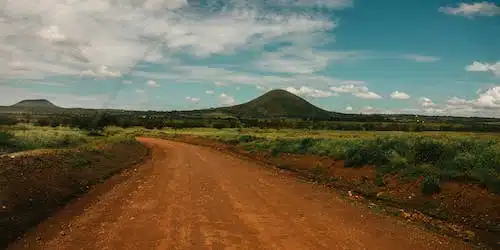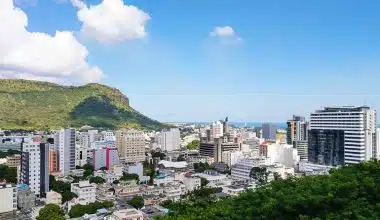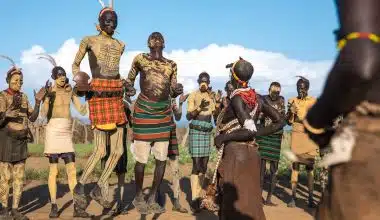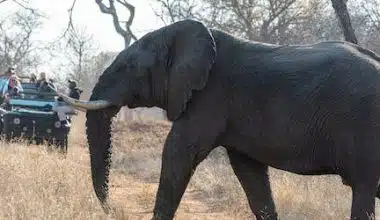Knowing the safety of Tanzania is paramount when visiting this country with its stunning landscapes, wildlife, and vibrant culture. Most sojourners always ask, Is Tanzania safe? Tanzania is generally considered a safe country for visitors, but it is important to be aware of risks such as crime, terrorism, LGBTI safety, road safety, personal safety, local sensitivities, and natural disasters. Travelers should exercise caution, follow local laws, and be aware of local customs and traditions. This writing provides you with more clarity about Tanzanian safety and factors to consider for safety and benefits.
Is Tanzania Safe?
Tanzania is generally considered a safe country for visitors, but it is important to be aware of certain risks and take necessary precautions.
Factors To Consider On The Safety Of Tanzania
#1. Crime
Tanzania experiences a certain level of crime, including violent crimes such as assault, sexual assault, robberies, mugging, and carjacking. It is important to exercise caution and take common-sense safety measures to minimize the risk of becoming a victim of crime.
#2. Terrorism
There is a risk of terrorist attacks in Tanzania, although the likelihood is generally low. Terrorist groups could target embassies, police stations, mosques, and other public places. Travelers are advised to remain vigilant and stay informed about the current security situation.
#3. LGBTI Safety
Tanzania has been known to have a challenging environment for LGBTI individuals. Discrimination and harassment based on sexual orientation are prevalent, and same-sex sexual acts are illegal. LGBTI travelers should carefully consider the risks before traveling to Tanzania.
#4. Road Safety
Road conditions in Tanzania can be challenging, and traffic accidents are common. If you plan to drive, ensure that you have the necessary licenses and permits. It is also advisable to use reputable transportation services and follow local traffic laws.
#5. Personal Safety
Travelers should take precautions to protect their health while in Tanzania. This includes following local laws and customs, avoiding wearing expensive clothing or jewelry, keeping hotel doors locked, and storing valuables in secure areas.
#6. Local Sensitivities
Travelers should be mindful of local sensitivities and respect religious and social traditions. Dressing conservatively and behaving discreetly is recommended. Women should cover their shoulders and refrain from wearing shorts.
#7. Natural Disasters
Tanzania is prone to natural disasters such as flooding, droughts, and earthquakes. Stay informed about weather conditions, follow any evacuation orders or safety instructions, and have a plan in place in case of emergencies.
#8. Wildlife Encounters
Tanzania is famous for its wildlife, including national parks and reserves. While wildlife encounters can be an incredible experience, it is crucial to follow the guidance of trained guides and park officials to ensure your safety and the well-being of the animals.
#9. Remote Areas and Adventure Activities
Tanzania offers opportunities for adventure activities such as hiking, climbing, and safaris. If venturing into remote areas or participating in outdoor activities, ensure you have a knowledgeable guide, proper equipment, and appropriate precautions in place.
#10. Scams and Touts
Tanzanian tourists may fall victim to touts and fraud, just as in many other tourist locations. To safeguard yourself against fraud or theft, be wary of unsolicited offers, choose reliable tour operators, and be informed about typical travel scams.
Is Tanzania Safe To Visit?
Tanzania is safe to visit. Nevertheless, there are other issues to be careful of. There is a low risk of terrorist attacks, and LGBTI travelers should be cautious due to discrimination. Road conditions can be challenging, and health precautions should be taken. Respecting local customs and sensitivities is important. Stay informed through official sources and travel advisories for the latest information.
Benefits Of Visiting Tanzania For Travelers
#1. Rich Wildlife and Nature
Tanzania is renowned for its diverse wildlife and stunning natural landscapes. From the Serengeti National Park to the Ngorongoro Crater, visitors can witness incredible animal migrations, go on thrilling safaris, and explore breathtaking scenery.
#2. Visa-Free Travel
Tanzanian passport holders enjoy visa-free or visa-on-arrival access to many countries, making it easier for them to explore the world.
#3. Cultural Heritage Sites
Tanzania is home to several UNESCO World Heritage Sites, including Stone Town in Zanzibar, the Ruins of Kilwa Kisiwani, and the archaeological site of Kondoa Rock Art. These sites offer insights into the country’s rich history and cultural significance.
#4. Mount Kilimanjaro
Tanzania is home to Mount Kilimanjaro, the highest peak in Africa. Climbing this iconic mountain offers a challenging and rewarding adventure for outdoor enthusiasts.
#5. Great Migration
Witnessing the Great Migration is a once-in-a-lifetime experience. Millions of wildebeest, zebras, and other animals migrate across the Serengeti in search of fresh grazing, creating a spectacular natural phenomenon.
#6. Friendly Hospitality
Tanzanians are known for their warm hospitality and welcoming nature. Visitors can expect friendly interactions and a genuine sense of community throughout their stay.
#7. Affordability
Compared to other safari destinations, Tanzania offers relatively affordable options for accommodation, tours, and activities, making it accessible to a wide range of travelers.
#8. Adventure Activities
Tanzania provides opportunities for thrilling adventure activities such as hot-air balloon safaris, diving, snorkeling, and hiking. There is something for every adventure seeker.
#9. Zanzibar Archipelago
The Zanzibar Archipelago, including the islands of Zanzibar and Pemba, offers pristine beaches, crystal-clear waters, and a fascinating blend of African, Arab, and European influences. It is a perfect destination for relaxation and water activities. You can read our post on the best beaches in Tanzania
#10. Unique Cultural Experiences
Tanzania is home to a rich cultural heritage with over 120 different ethnic groups. Travelers can immerse themselves in local traditions, interact with Maasai tribes, and experience vibrant music, dance, and cuisine.
Is Tanzania Safe For Tourists?
Tanzania is generally safe for tourists, but it’s important to be cautious and take the necessary precautions. Crime, terrorism, health precautions, and border areas should be considered. Respect local laws and customs, be aware of express kidnappings, and exercise caution in major cities. Traveling with reputable guides enhances safety.
To go to Tanzania, tourists need to consider the following:
#1. Passport
A passport valid for at least six months beyond the date of entry and with at least one blank visa page is required. Visitors must also present a round-trip ticket and demonstrate sufficient funds for their stay.
#2. Visa
Depending on your nationality, you may need a visa to enter Tanzania. Check the visa requirements for your country and ensure you have the necessary visa before traveling.
#3. Health Precautions
It is advisable to consult with a health professional before traveling to Tanzania to receive any required vaccinations and medications. Diseases like yellow fever and malaria are prevalent, so taking the necessary precautions is essential.
#4. Travel Insurance
Ensure that your health insurance plan provides coverage overseas. Most care providers in Tanzania only accept cash payments, so having travel insurance can be beneficial.
#5. Safety Precautions
Familiarize yourself with local laws and social customs in Tanzania. Avoid wearing expensive clothing or jewelry, keep hotel doors locked, and store valuables in secure areas. It is recommended to choose hotel rooms between the 2nd and 6th floors for added security. Carry emergency contact numbers and stay informed about the security situation.
#6. Money
Carry sufficient cash for your trip, as credit cards may not be widely accepted in all areas. It is advisable to exchange currency at authorized exchange offices or banks.
#7. Packing
Consider packing essential health-related items, such as prescription medicines, insect repellent, and a first aid kit. Also, pack appropriate clothing for the weather and activities, including comfortable walking shoes and swimwear if visiting coastal areas.
#8. Transportation
Plan your transportation within Tanzania, whether it’s booking flights or arranging ground transportation. Consider the cost and availability of transportation options.
#9. Accommodation
Make reservations for accommodations in advance, whether it’s hotels, lodges, or campsites. Tanzania offers a wide range of options to suit different budgets and preferences.
#10. Travel Guides and Maps
Carry travel guides or download travel apps that provide information about the destinations you’ll be visiting. Physical maps or offline maps on your phone can also be helpful for navigation.
Is Tanzania Safe To Travel?
Although travel to Tanzania is safe, it’s nevertheless vital to be aware of potential concerns like crime, terrorism, and the targeting of LGBTI people. The governments of the United States, Australia, Canada, and the United Kingdom advise exercising caution when close to Tanzania’s border with Mozambique. Avoiding abandoned places and concealing valuables are common safety measures.
Tips To Consider When Traveling to Tanzania
#1. Travel Advisories
Stay informed about the latest travel advisories from your government and follow any recommendations or warnings provided.
#2. Passport and Visa
Ensure your passport is valid for at least six months beyond your planned departure date. Check the visa requirements for your nationality and obtain the necessary visa before traveling.
#3. Health Precautions
Consult with a healthcare professional to receive any required vaccinations and medications for diseases like yellow fever and malaria. Follow food and water safety guidelines to prevent illnesses.
#4. Stay Informed
Monitor local news and social media for any updates or developments that may affect your travel plans. Register with your embassy or consulate for emergency notifications.
#5. Observe their Customs
Learn about the traditions and customs of the area. Particularly at places of worship or in rural areas, dress modestly. When visiting national parks, abide by the guidelines for protecting wildlife and the environment.
#6. Communication
Have a reliable means of communication, such as a local SIM card or an international roaming plan. Share your itinerary with a trusted person and stay in touch with them during your trip.
#7. Transportation Safety
Use licensed and reputable transportation options, such as registered taxis or trusted tour operators. If using public transportation, be cautious of pickpockets and keep an eye on your belongings.
#8. Language
Learn a few basic Swahili phrases, as it is widely spoken in Tanzania. Locals will appreciate your effort to communicate, and it can enhance your travel experience.
#9. Wildlife Safety
If visiting national parks or wildlife reserves, follow the instructions of park rangers and guides. Keep a safe distance from animals and never feed or disturb them. Do not litter and respect the natural environment.
#10. Photography Permits
If you plan to do professional or commercial photography in Tanzania, obtain the necessary permits in advance. Some areas may have restrictions or require additional fees for photography.
Is Tanzania Safe For Solo Female Travelers?
Tanzania is very safe for solo female travelers; nonetheless, there are preventative measures to be taken. Solo female travelers should be vigilant, avoid displaying valuable items, and stay in public places. It is recommended to join group safaris for added safety. Trusting your instincts, following general safety guidelines, and respecting local customs are essential. Tanzania is rated as one of the safest places to visit in Africa. Seeking advice from local communities and staying informed can provide valuable insights.
Various Safe Destinations in Tanzania for Solo Female Travelers
Tanzania offers a variety of destinations that are suitable for solo female travelers.
#1. Zanzibar
Zanzibar is a popular destination known for its stunning white-sand beaches and crystal-clear waters. It offers a range of activities such as diving, swimming, boating, and exploring the markets in Stone Town. Zanzibar is also known for its vibrant and communal atmosphere, where you can easily connect with other travelers.
#2. Arusha
Arusha is the gateway to Tanzania’s famous national parks, including Serengeti National Park and Mount Kilimanjaro. It is a vibrant city with a mix of cultures and a variety of accommodations and restaurants. Arusha is a great base for exploring the wildlife and natural beauty of Tanzania, and there are tour operators that offer safe and guided experiences for solo travelers.
#3. Dar es Salaam
Dar es Salaam is the largest city in Tanzania and serves as the country’s economic and cultural hub. It offers a blend of modern amenities and traditional African charm. The city has a range of attractions, including museums, markets, and beautiful beaches
#4. Ngorongoro Conservation Area
The Ngorongoro Conservation Area is a UNESCO World Heritage Site and home to the Ngorongoro Crater, which is often referred to as the “Eighth Wonder of the World.” It is a unique and breathtaking destination, known for its abundant wildlife and stunning landscapes. Solo travelers can join guided tours or hire a private guide to explore the area safely.
#5. Serengeti National Park
Serengeti National Park is one of the most famous wildlife destinations in the world. It is known for its annual wildebeest migration and offers incredible opportunities for wildlife viewing. Solo travelers can join group safaris or hire a private guide to explore the park and witness the incredible wildlife.
#6. Moshi
Moshi is a town located at the base of Mount Kilimanjaro, the highest peak in Africa. It is a popular destination for adventure enthusiasts and offers opportunities for hiking, trekking, and exploring the surrounding natural beauty. Moshi has a friendly and welcoming atmosphere, making it a suitable destination for solo female travelers.
#7. Mikumi National Park
Mikumi National Park is located in the southern part of Tanzania and offers a diverse range of wildlife and landscapes. It is known for its open grasslands and acacia woodlands. Solo travelers can join guided game drives or opt for a self-drive safari within the park.
#8. Pemba Island
Pemba Island is another beautiful destination off the coast of Tanzania. It is less developed and less crowded compared to Zanzibar, making it an ideal choice for solo female travelers seeking a more tranquil and secluded experience. Pemba Island is known for its pristine beaches, coral reefs, and excellent snorkeling and diving opportunities.
#9. Lake Manyara National Park
Lake Manyara National Park is a scenic park located at the foot of the Great Rift Valley. It is famous for its tree-climbing lions and diverse bird life. The park offers game drives, walking safaris, and canoeing experiences.
#10. Bagamoyo
Bagamoyo is a historic coastal town located north of Dar es Salaam. It was once a significant trading port and a center for the East African slave trade. Today, it is known for its rich history, unique architecture, and vibrant arts scene.
How Safe Is Tanzania for Tourists?
Tanzania is generally safe for tourists, but it’s important to take precautions due to the presence of violent crime, including assault and robbery. Popular tourist hotspots like Zanzibar and Kilimanjaro are considered safe, but it’s advised to avoid isolated areas and take taxis at night. Organized crime and kidnappings are rare but can occur in certain areas. Overall, with proper precautions and awareness, tourists can have a safe and enjoyable experience in Tanzania.
What To Avoid In Tanzania?
Tanzania is a country known for its diverse wildlife, but it is also known for its violent crime. It is important to be aware of the potential dangers, especially in urban areas, and to avoid isolated areas at night. Food safety is also crucial, with some items being unsafe. Political demonstrations and border areas should be avoided due to potential violence. Altitude sickness is a risk, especially for high-altitude activities like climbing Mount Kilimanjaro. Animal safety is also crucial, given the risk of diseases like rabies and parasitic infections like schistosomiasis.
Is Tanzania Cheap Or Expensive?
Tanzania is an affordable travel destination, but the overall cost will depend on factors such as accommodation choices, transportation, food, and activities. Accommodation options range from budget-friendly to luxurious. Public transportation is inexpensive, while private transportation can be more expensive. Eating at local restaurants and street food stalls is affordable. Safaris can be a significant expense. Zanzibar offers a range of accommodation options. While Tanzania is generally more expensive compared to some other African countries, it is possible to travel on a budget by making cost-conscious choices.
Is Tanzania A Rich Or Poor Country?
Tanzania is considered a lower-middle-income country with a significant portion of its population living below the World Bank poverty line. While the country has rich natural resources and potential for economic growth, the lack of infrastructure and prevailing poverty have hindered its development. Tanzania has made progress in areas such as education, health, and social protection with the support of development partners like the World Bank. The country’s economy remains vulnerable to factors such as climate variability and insufficient electricity production.
Is Kenya Or Tanzania Safer?
Tanzania is safer than Kenya for tourists. While both countries are generally safe to visit, Tanzania is rated as a safer country overall. Kenya has higher crime rates, including incidents of political violence, inner-city crimes, and terrorism. It also experiences cases of kidnapping, carjacking, and muggings, particularly in cities like Nairobi and Mombasa. However, it is always advisable to follow basic safety guidelines, use common sense, and stay informed about the current situation when traveling to any destination.
Is Tanzania Safe For A Single Woman?
Tanzania is generally safe for solo female travelers. The country has been rated as one of the safest in Africa for tourists, including solo female travelers. However, taking basic precautions such as avoiding isolated areas at night, using reliable transportation, and staying in reputable accommodations can contribute to a safe and enjoyable trip.
Conclusion
Tanzania offers a safe and diverse destination with low terrorist risks, but travelers should be cautious of discrimination and road conditions. The country offers visa-free travel, cultural heritage sites, and the opportunity to witness the Great Migration, including the Serengeti National Park. Tanzania is generally safe for tourists. Tanzania is safe to travel to, but it’s important to be aware of potential threats like crime, terrorism, and LGBTI targeting. To ensure safety, follow travel advisories and observe local customs. These destinations offer stunning white-sand beaches, vibrant cultures, and opportunities for wildlife viewing.
- US PASSPORT VISA FREE COUNTRIES IN 2024
- IS MOROCCO SAFE FOR AMERICANS?
- IS CANCUN SAFE TO TRAVEL? All You Need To Know
- IS UGANDA SAFE? All You Need To Know
- SAFEST LATIN AMERICAN COUNTRIES IN 2023






